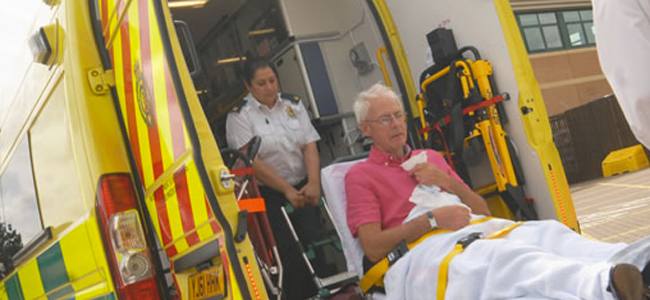
Four-hour strike for the NHS staff in England and Northern Ireland
NHS workers, including nurses, midwives and ambulance staff, are staging four-hour strikes in England and Northern Ireland as part of a pay dispute, BBC said. They are protesting about the decision not to implement a 1% rise for all staff recommended by a pay review body.
Member of nine unions will walk out from 07:00 in England and an hour later in Northern Ireland. A Department of Health spokesman said it could not afford the rise without risking frontline jobs.
Non-urgent care
Unions say the industrial action is unlikely to affect urgent care, but pre-booked outpatient appointments and non-emergency surgery and operations could be delayed. The strike will be followed by up to six days of work-to-rule. Measures will include members claiming pay for extra hours or refusing to work overtime. And staff will take all breaks to which they are entitled. The decision follows a four-hour strike on 13 October, the first in the NHS over pay for 30 years. Thousands of healthcare workers took part but disruption was minimised after the seven unions involved agreed staff would ensure emergency and urgent care were covered.
Two further unions have backed the second round of strikes. The nine unions involved represent more than 400,000 staff and include:
Unison
Royal College of Midwives
Union of Construction, Allied Trades and Technicians
Society of Radiographers (strike action between 08:00 and 12:00)
British Association of Occupational Therapists
GMB
Unite
Managers in Partnership
Prison Officers Association
Members of the British Dietetic Association and Hospital Consultants and Specialists Association are considering taking part in action short of strike action from 25-30 November.
Pay award
Ministers in England have awarded NHS staff a 1% increase, but only for those without automatic progression-in-the-job rises. Automatic pay rises are given to about half of all staff. They are designed to reward professional development and are worth 3% a year on average. An independent pay review board had said the 1% increase should be across the board. It was implemented in full in Scotland. Northern Ireland has yet to make a decision on pay. Trade unions in Wales accepted a two-year pay deal set out by the government this month.
A Department of Health spokesman said: “NHS staff are our greatest asset and we want to make the current pay system fairer – which is why we have put forward proposals that would guarantee all staff would get at least a 1% pay rise this year and next, but these have been rejected by the unions. “We have taken tough decisions to increase the NHS budget, but we can’t afford a consolidated pay rise in addition to increments without risking 10,000 frontline jobs.” Cathy Warwick, chief executive of the Royal College of Midwives, said: “This is not about our members demanding huge banker-sized bonuses, or asking for the similarly large bonuses and pay increases given to many senior managers in the NHS. “It is about our members having to fight just to get the very modest 1% pay award recommended by the NHS pay review body. “It is also an award which still lags way behind the rising cost of living and will see our members earning the same in 2016 as they did in 2013.”


